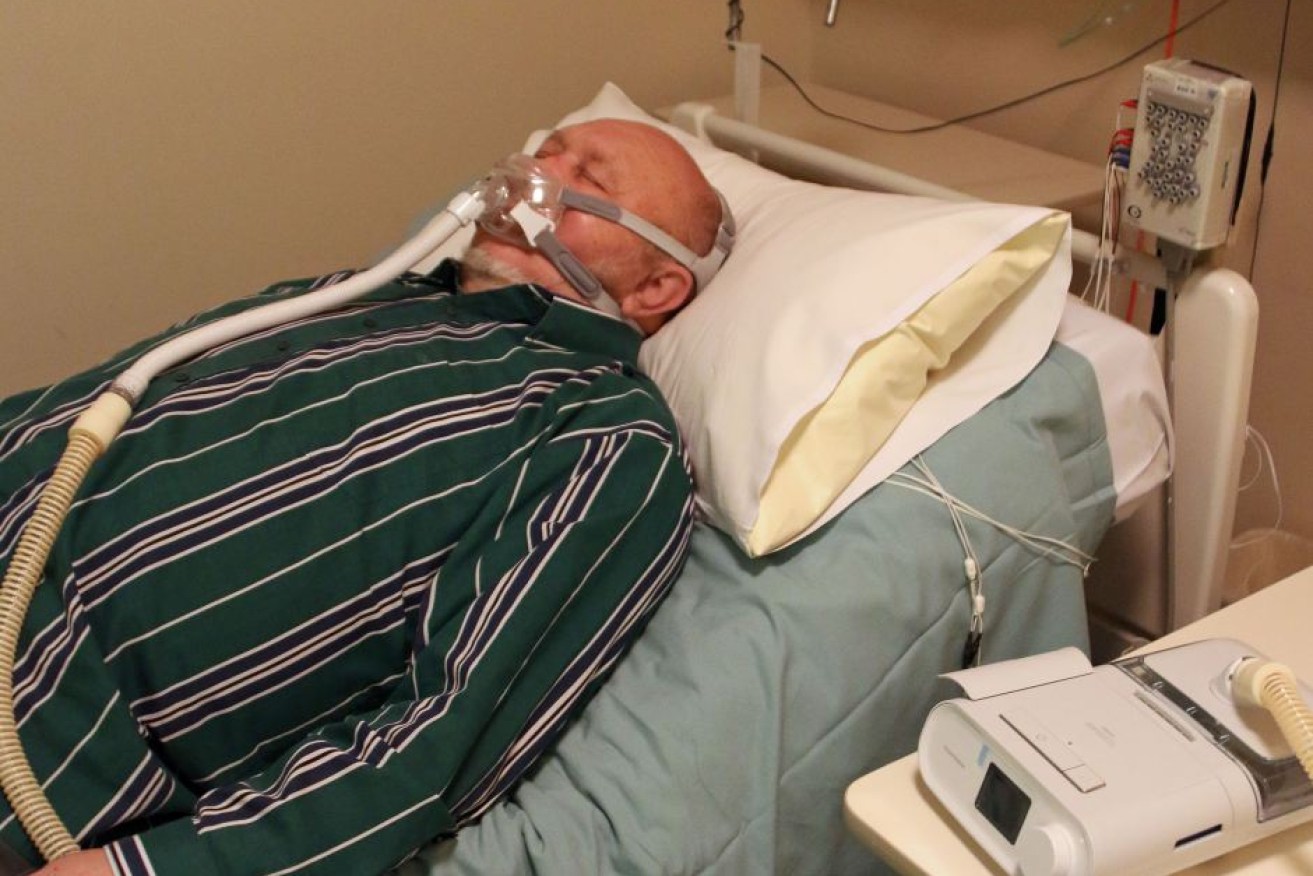CPAP machines don’t reduce heart attack risk: study

David Cahoon uses a CPAP machine to overcome his sleep apnoea. Photo ABC
An international study led by Australian sleep specialists has shown machines designed to help people with sleep apnoea do not reduce the risk of heart attack or stroke, but significantly improve quality of life.
The study of more than 2700 sleep apnoea sufferers with cardiovascular disease estimated 25 per cent of middle-aged men and 10 per cent of middle-aged women suffer from sleep apnoea.
The Sleep Apnoea Cardiovascular Endpoints (SAVE) study monitored sleep apnoea patients with a pre-existing vascular disease over four years in 89 hospitals in Australia, New Zealand, India, the US, Spain and Brazil.
Researchers were looking at whether a continuous positive airway pressure (CPAP) machine would prevent major cardiovascular events including heart attack and stroke.
Irishman David Cahoon emigrated to Australia more than a decade ago after undergoing heart bypass surgery in the UK in 1994.
“I’ve always been a terrible snorer,” Mr Cahoon told the ABC.
In England he had been prescribed a rubber mouthpiece designed to hold his jaw forward at night to reduce his snoring, but until he came to Australia he did not realise he had sleep apnoea.
Early testing at the Flinders University Sleep Lab in Adelaide indicated Mr Cahoon’s breathing was being interrupted 53 times an hour while he slept.
Most days Mr Cahoon found it difficult to stay awake.
“If I went to the cinema or the theatre, halfway through the show or even 15 minutes my wife would be, ‘wake up, wake up’.”
After he volunteered for the SAVE study he was one of the 50 per cent of participants given a CPAP machine to help him breathe properly at night.
“My GP at the time told me that if I were on a CPAP machine it could theoretically give me an extra 10 years life expectancy.”
The other 50 per cent of participants did not use the CPAP machine.
CPAP machines reduce sleepiness and depression

David Cahoon used to struggle to stay awake during films and shows.
The results of the study released this week showed the CPAP treatment made no difference to whether patients had a major cardiovascular event.
Professor Doug McEvoy from the Adelaide Institute for Sleep Health, run by Flinders University, said the overall risk of future cardiovascular events was not improved by the treatment for sleep apnoea.
Professor Ron Grunstein from the Woolcock Institute of Medical Research in Sydney said there were “major improvements in wellbeing”.
The SAVE study emphasises the benefits that apnoea sufferers receive by using CPAP machines for at least four hours during a sleep session — a finding manufacturers will be paying close attention to.
ResMed is an ASX listed manufacturer of CPAP machines and works closely with Flinders University developing the technology.
The manufacturer’s head of research Dr Jeff Armistead said his company is working “tirelessly to make our devices more elegant, quieter, smaller, more user-friendly and more comfortable”.
Mr Cahoon said he is used to the discomfort associated with wearing the CPAP mask at night and no longer falls asleep during movies or theatre shows, much to the relief of his wife.
–ABC








